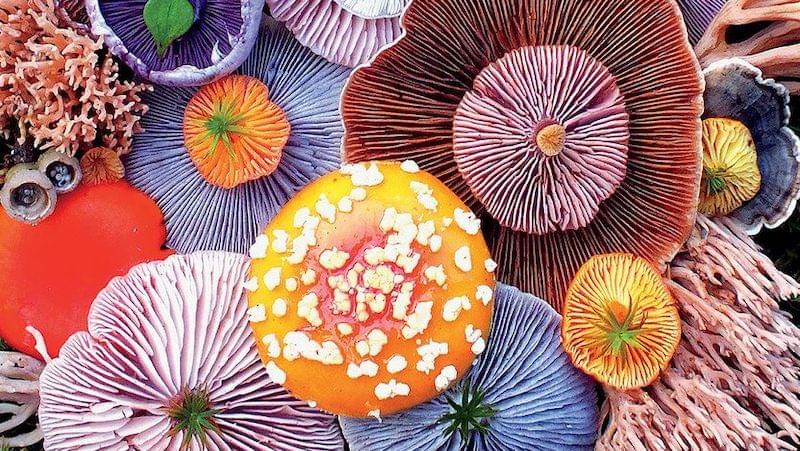Articles and videos about Food and Drinks on Fox News.


One Health Approaches To Prevent Zoonoses & Antimicrobial Resistance — Dr. Keith Sumption, Ph.D. — Chief Veterinary Officer and Leader of the Animal Health Program; Director, Joint Centre for Zoonoses and Anti-Microbial Resistance (CJWZ), Food and Agriculture Organization of the United Nations (FAO)
Dr. Keith Sumption, Ph.D. is Chief Veterinary Officer and Leader of the Animal Health Program at the Food and Agriculture Organization of the United Nations (FAO — https://www.fao.org/home/en) as well as their Director of the Joint Centre for Zoonoses and Anti-Microbial Resistance (CJWZ).
The Food and Agriculture Organization of the United Nations is an international organization that leads international efforts to defeat hunger and improve nutrition and food security. The FAO comprises 195 members and helps governments and development agencies coordinate their activities to improve and develop agriculture, forestry, fisheries, and land and water resources. It also conducts research, provides technical assistance to projects, operates educational and training programs, and collects agricultural output, production, and development data.
Dr. Sumption has worked on disease ecology at the interaction of wildlife, domestic and the environment for more than 30 years.
Dr. Sumption holds a Doctor of Philosophy (PhD) from the University of Reading, gained following 3 years of field and molecular epidemiology research upon African Swine Fever in southern Africa, and veterinary medicine (Vet. MB) and Natural Sciences degrees from the University of Cambridge in the United Kingdom.
https://gotopnews.com/post/1979903
Scientists created mice with two biological dads by producing eggs from male cells, which is a development that opens radical new possibilities for reproduction. Progress can ultimately pave way for treatments for severe infertility forms and increase possibility of attracting couples of same gender to have a biological child in future. Hayashi, who presented development at the third International Human Genome Regulation Summit at Francis Crick Institute in London on Wednesday, predicts it would be technically possible to create a human egg from a male skin cell in ten years. Considering that human eggs did not create eggs, he argued this timeline was optimistic. Previously, scientists have created mice technically with a detailed step chain, including genetic engineering. This is first time that can be applied first time, eggs were raised from male cells and pointing to an important progress. He was trying to reproduce with human cells, but there would be important obstacles for use of eggs grown in laboratory clinical purposes, including creating safety. “In terms of technology, it will be possible even in 10 years in 10 years, ve he personally added that the technology used clinically to allow two men to have a baby. Orum I don’t know if they are ready reproduction,” he said.“This is a question not only for the scientific program, but also[society].” Technique, X chromosome is missing or partially missing a copy of the turner syndrome, including women with severe infertility forms can be applied to treat and Hayashi, this application is the primary motivation for research, he said. Others argued that translating technique into human cells may be challenging. Human cells need much longer agricultural periods to produce a mature egg, which can increase the risk of undesirable genetic changes. Profess George Daley, the Dean of Harvard Medical Faculty, described the study as “fascinating„ but other researches also showed that creating gamet creating from human cells in laboratory is more difficult than mouse cells.said. The study, which was sent to be leading magazine, was based on a number of complex steps to transform skin cell that carries the combination of male XY chromosomes into an egg. Men’s skin cells were re-programmed into a stem cell-like condition to form the induced pluripotent root cells. Then the Y chromosome of these cells was deleted and changed and ” borrowed from another cell to produce IPS cells with two identical X chromosome. Hayashi said, ” The trick, greatest trick, the reproduction of X chromosome,” he said. ” We really tried to establish a system to replicate the X chromosome.” Finally, cells were grown in an ovary organoid with a cultural system designed to replicate the conditions within ovary. When Yumurtas were fertilized with normal sperm, scientists obtained approximately 600 embryos implanted in the mice, which resulted in birth of seven mouse offspring. ‘Efficiency was lower than the efficiency obtained by normal female-derived eggs, where approximately 5% of the embryos continued to produce a lively birth. Baby mice looked healthy, had a normal life, and as an adult continued to the offspring. ” They look good, they grow normal, they become a father, Hay Hayashi said. He and his colleagues are now trying to increase the creation of eggs grown in the laboratory using human cells. Working on Gamets grown in the laboratory at the University of California Los Angeles, Prof Amander Clark said that it would be a ” big jump in, because scientists have not yet created human eggs from women’s cells. Scientists have created the premises of human eggs, but so far, cells, mature eggs and sperm, a critical cell division step, which has stopped development before the point of meiosis. It can be 10 years or 20 years.”

The machines could help to “drastically increase the efficiency of the farming industry.”
In farming, weeds can strangle crops and destroy yields. Unfortunately, spraying herbicides to deal with the intrusive plants pollutes the environment and harms human health and there simply aren’t enough workers to tackle all the weeds by hand.
A new startup called FarmWise has come up with a solution: autonomous weeding robots that use artificial intelligence to cut out weeds while leaving crops untouched, according to an MIT report published on Thursday.
Worker bees twerk in order to inform their coworkers of a pollen target. The specific communication signal that they use is referred to as the waggle dance. These bees perform steps to show where and how far the food is.
Now, a recent study has shed light on how bees actually learn how to do the waggle dance.
In episode 13 of the Quantum Consciousness series, Justin Riddle discusses how microtubules are the most likely candidate to be a universal quantum computer that acts as a single executive unit in cells. First off, computer scientists are trying to model human behavior using neural networks that treat individual neurons as the base unit. But unicellular organisms are able to do many of the things that we consider to be human behavior! How does a single-cell lifeform perform this complex behavior? As Stuart Hameroff puts it, “neuron doctrine is an insult to neurons,” referring to the complexity of a single cell. Let’s look inside a cell, what makes it tick? Many think the DNA holds some secret code or algorithm that is executing the decision-making process of the cell. However, the microscope reveals a different story where the microtubules are performing a vast array of complex behaviors: swimming towards food, away from predators, coordinating protein delivery and creation within the cell. This begs the question: how do microtubules work? Well, they are single proteins organized into helical cylinders. What is going on here? Typically, we think of a protein’s function as being determined by its structure but the function of a single protein repeated into tubes is tough to unravel. Stuart Hameroff proposed that perhaps these tubulin proteins are acting as bits of information and the whole tube is working as a universal computer that can be programmed to fit any situation. Given the limitations of digital computation, Roger Penrose was looking for a quantum computer in biology and Stuart Hameroff was looking for more than a digital computation explanation. Hence, the Hameroff-Penrose model of microtubules as quantum computers was born. If microtubules are quantum computers, then each cell would possess a central executive hub for rapidly integrating information from across the cell and to turn that information into a single action plan that could be quickly disseminated. Furthermore, the computation would get a “quantum” speed-up in that exponentially large search spaces could be tackled in a reasonable timeframe. If microtubules are indeed quantum computers, then modern science has greatly underestimated the processing power of a single cell, let alone the entire human brain.
~~~ Timestamps ~~~
0:00 Introduction.
3:08 “Neuron doctrine is an insult to neurons”
8:23 DNA vs Microtubules.
14:20 Diffusion vs Central Hub.
17:50 Microtubules as Universal Computers.
23:40 Penrose’s Quantum Computation update.
29:48 Quantum search in a cell.
33:25 Stable microtubules in neurons.
35:18 Finding the self in biology.
#quantum.
#consciousness.
#microtubules.
Website: www.justinriddlepodcast.com.
Email: [email protected].
Twitter: @JRiddlePodcast.
Music licensed from and created by Baylor Odabashian. BandCamp: @UnscrewablePooch.
Painting behind me by Paul Seli. IG: @Paul. Seli.art

Fungi are everywhere—in our lawns and forests, in and on our bodies, and even lurking in that forgotten Tupperware container in the back of the fridge. While some fungi are harmful, the vast majority are beneficial to their environments and serve important ecological roles.
Some fungi act as parasites, infecting their hosts and sickening or even killing them. Common human ailments such as ringworm and athlete’s foot are caused by fungi. Pathogenic fungi like rusts and mildews regularly cause costly damage to important agricultural crops. Chestnut blight, Cryphonectria parasitica, was inadvertently introduced to North America from Southeast Asia at the turn of the twentieth century and in a few short decades wiped out billions of chestnut trees in the United States, nearly causing their extinction. Fungi even attack other fungi. Hypomyces lactifluorum parasitizes species of Lactarius and Russula, transforming them into the choice edible known as the lobster mushroom.
Hands down, though, the fungal parasites that infect insects have to be among the most bizarre. These fungi keep their insect hosts alive but take complete control of their actions, using them as zombie minions to spread their spores for them.

Iwas never into house plants until I bought one on a whim—a prayer plant, it was called, a lush, leafy thing with painterly green spots and ribs of bright red veins. The night I brought it home I heard a rustling in my room. Had something scurried? A mouse? Three jumpy nights passed before I realized what was happening: The plant was moving. During the day, its leaves would splay flat, sunbathing, but at night they’d clamber over one another to stand at attention, their stems steadily rising as the leaves turned vertical, like hands in prayer.
“Who knew plants do stuff?” I marveled. Suddenly plants seemed more interesting. When the pandemic hit, I brought more of them home, just to add some life to the place, and then there were more, and more still, until the ratio of plants to household surfaces bordered on deranged. Bushwhacking through my apartment, I worried whether the plants were getting enough water, or too much water, or the right kind of light—or, in the case of a giant carnivorous pitcher plant hanging from the ceiling, whether I was leaving enough fish food in its traps. But what never occurred to me, not even once, was to wonder what the plants were thinking.
To understand how human minds work, he started with plants.
Robots are all around us, from drones filming videos in the sky to serving food in restaurants and diffusing bombs in emergencies. Slowly but surely, robots are improving the quality of human life by augmenting our abilities, freeing up time, and enhancing our personal safety and well-being. While existing robots are becoming more proficient with simple tasks, handling more complex requests will require more development in both mobility and intelligence.
Columbia Engineering and Toyota Research Institute computer scientists are delving into psychology, physics, and geometry to create algorithms so that robots can adapt to their surroundings and learn how to do things independently. This work is vital to enabling robots to address new challenges stemming from an aging society and provide better support, especially for seniors and people with disabilities.
A longstanding challenge in computer vision is object permanence, a well-known concept in psychology that involves understanding that the existence of an object is separate from whether it is visible at any moment. It is fundamental for robots to understand our ever-changing, dynamic world. But most applications in computer vision ignore occlusions entirely and tend to lose track of objects that become temporarily hidden from view.
From burgers to sausages and steak tips to chicken nuggets, there’s no shortage of plant-based “meat” products on grocery store shelves and in restaurants these days. Companies like Beyond Meat and Impossible Foods have done an impressive job diversifying their offerings, with almost any processed meat you can think of now on their lists (even beef jerky and popcorn chicken). But a key cut of meat is still missing from these big names’ menus: a good old-fashioned filet, just like the cows make ‘em.
I served the steak with quinoa and sauteed veggies, and after a few bites, I couldn’t deny it was both tasty and had a pleasant texture. Did it taste or feel like a real steak? Not really. The real meat it most reminded me of was rib meat, the kind that easily pulls off the bone when the ribs have been slow-cooked; soft and tender, but not dried out. The plant-based steak had a distinctly fatty-like mouthfeel without the excessive oiliness you sometimes get from animal fat.
Marbling Mystery
Achieving this texture, and a realistic “marbling” effect, has been one of the biggest challenges for plant-based meat companies. How do you replicate—with plants—animal tissue that has thin ribbons of fat running through it?